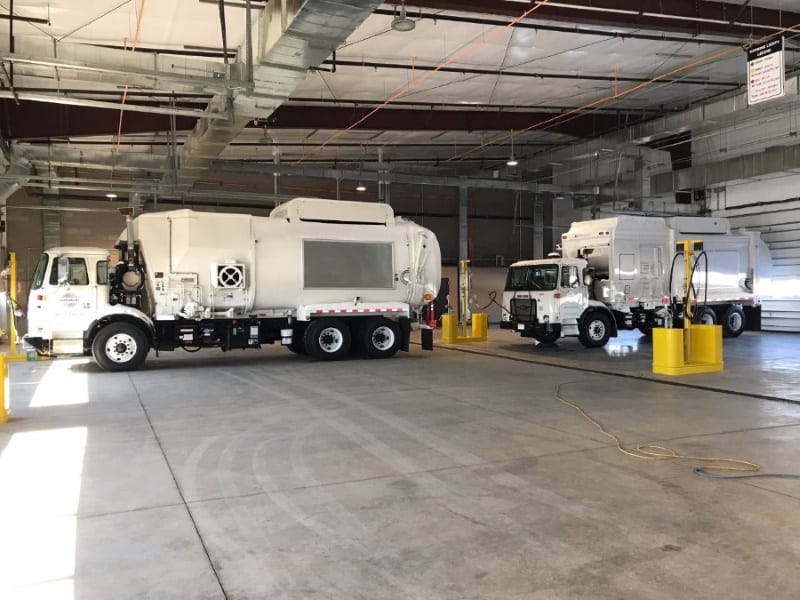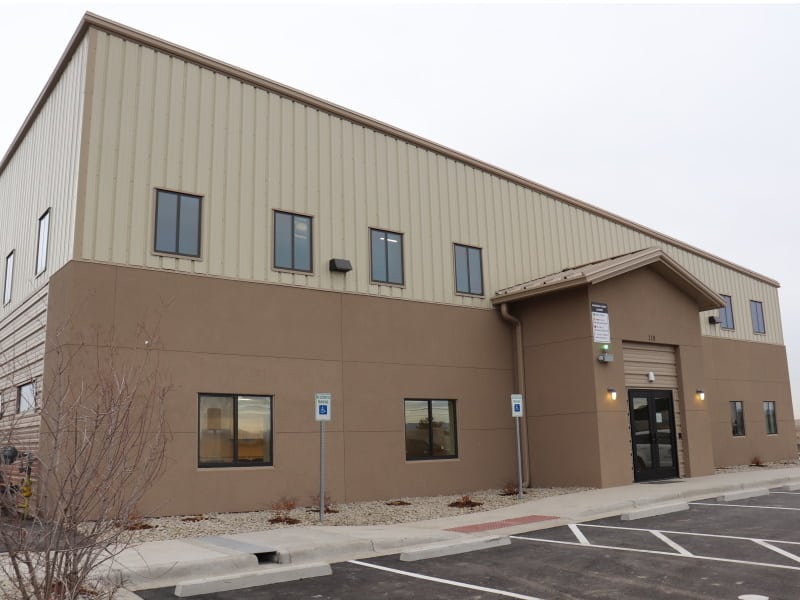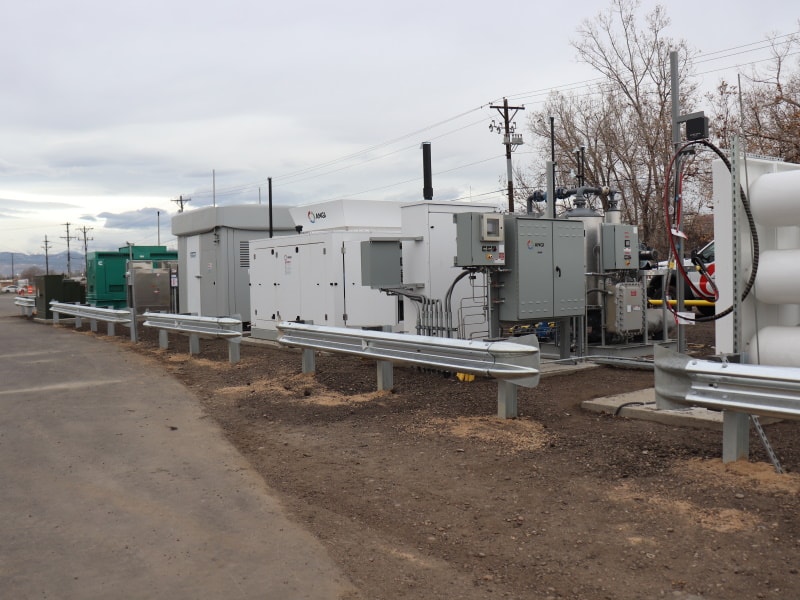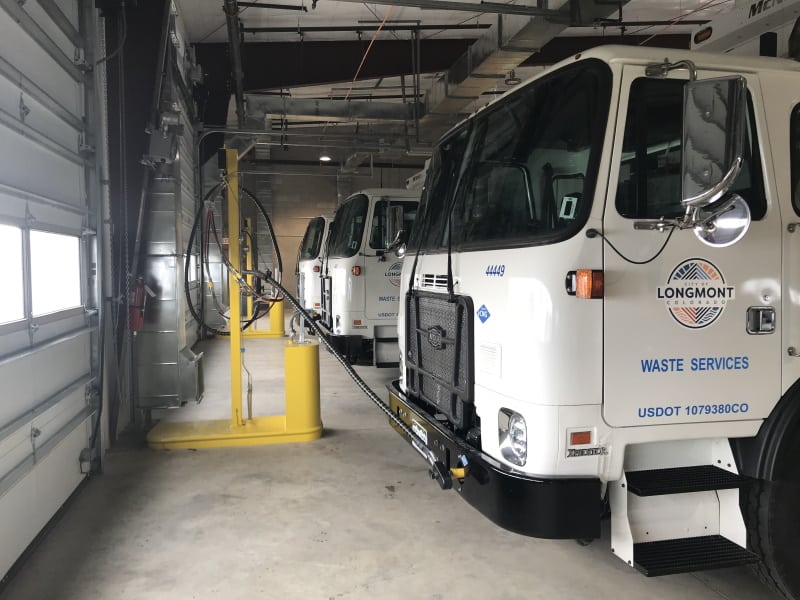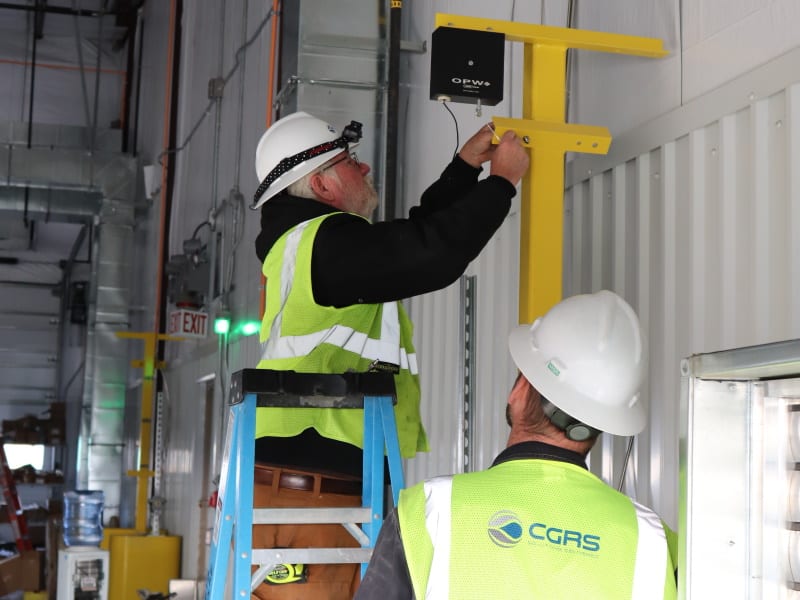Start-up of Longmont’s Renewable Natural Gas Project a Success
All systems are go for the City of Longmont’s Biogas Treatment and Renewable Natural Gas (RNG) Fueling Station Project, which transforms biogas from the wastewater-treatment process into sustainable fuel for the City’s trash, recycling and composting collection trucks.
Since setting the RNG equipment on the City’s Wastewater Treatment Plant (WWTP) site late last year, CGRS has successfully started up both sets of equipment: the RNG equipment that captures and cleans the biogas from the WWTP, and the Compressed Natural Gas (CNG) equipment that compresses it into fuel at the new Waste Services facility.
The Waste Services facility is now completed. It consists of a 22,680-square-foot building encompassing five bays and 16 fueling positions (or posts) for the City’s CNG waste services fleet. On the west side of the facility, a two-story, 5,000-square-foot administration space houses offices, a crew room, a training room and locker rooms.
Once it was determined that both the RNG and CNG systems were functioning, the next step was fueling and operating some of the new CNG trucks. After a successful trial run, the operators of Longmont’s 11 CNG trucks can now connect the trucks to the fueling posts at the end of their shifts. The trucks are filled with RNG overnight and ready for drivers to begin collection routes by the next morning.
On the administration side of the building, CGRS installed wall tile, locker room storage and benches, interior doors and countertops, and mechanical fixtures. The building received final inspection and is now home to the City’s Waste Services division. Charles Kamenides, Waste Services manager, has moved into his office, and the Longmont City Council held its annual retreat in the building in early February.
This project was one of the reduction strategies prioritized in the City of Longmont’s 2018 greenhouse gas inventory. With its completion, Longmont becomes the first city along the Front Range to implement a renewable vehicle fuel project.
Once the site is at full capacity, it is estimated that the City of Longmont will offset over 90,000 gallons of diesel fuels annually, reducing greenhouse gas emissions by about 1,000 metric tons of carbon dioxide equivalents per year — the equivalent of removing 200 cars from the road.

